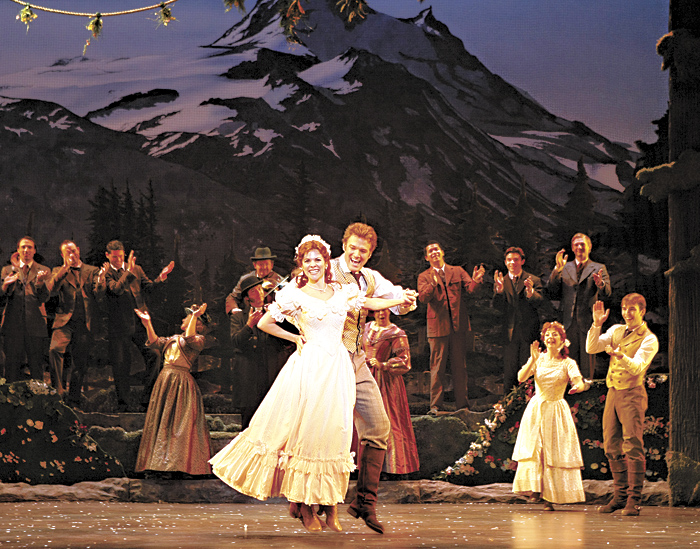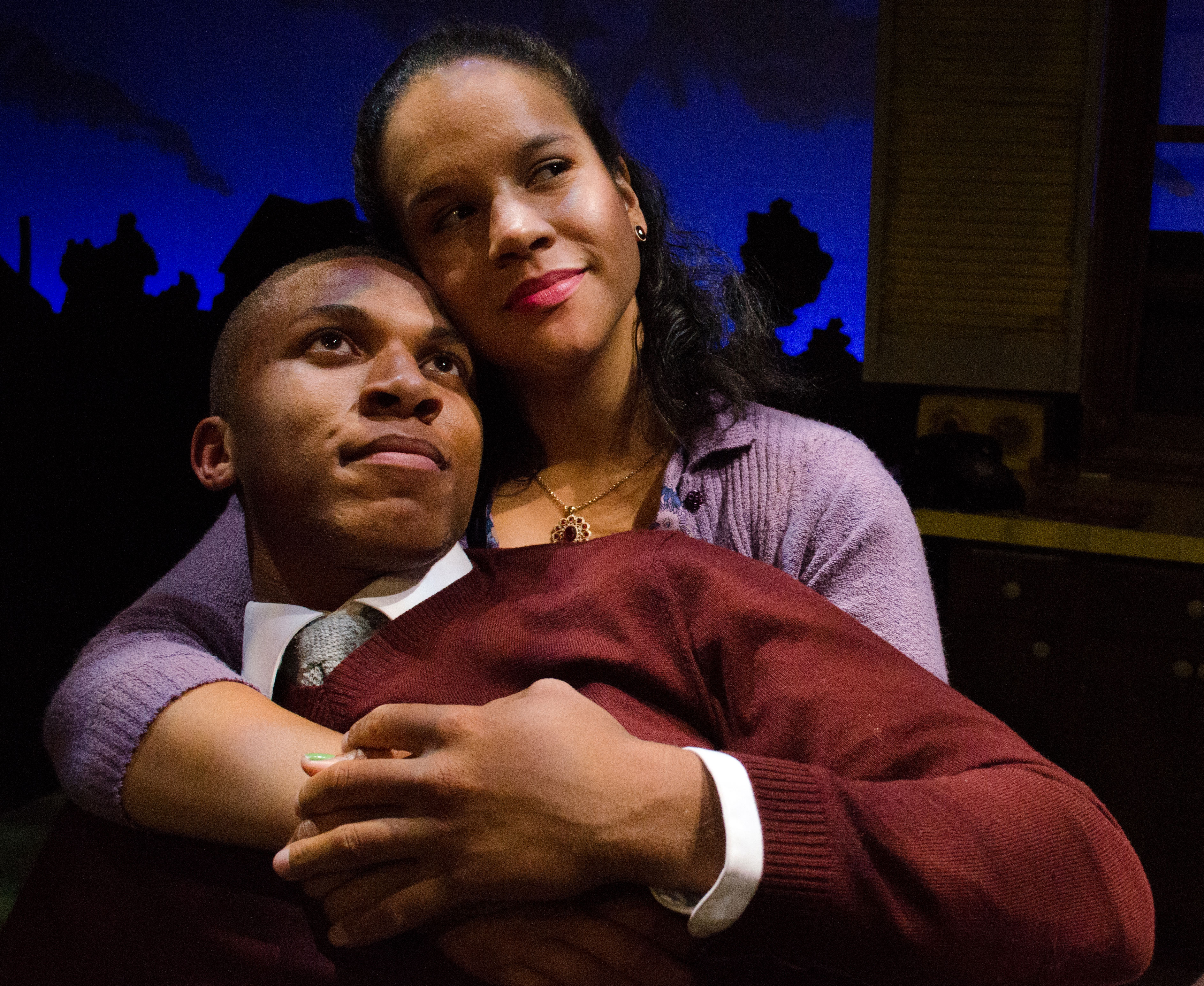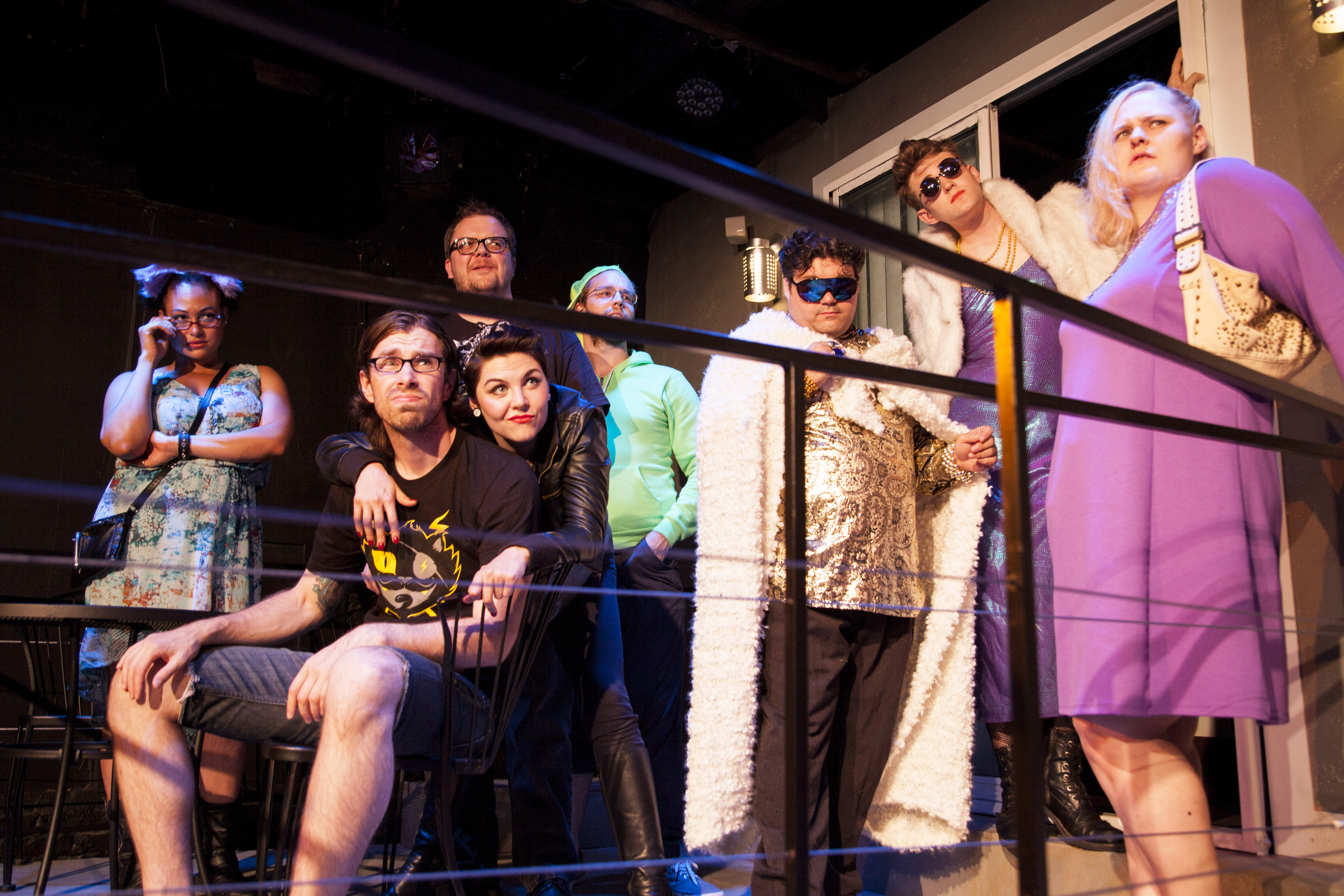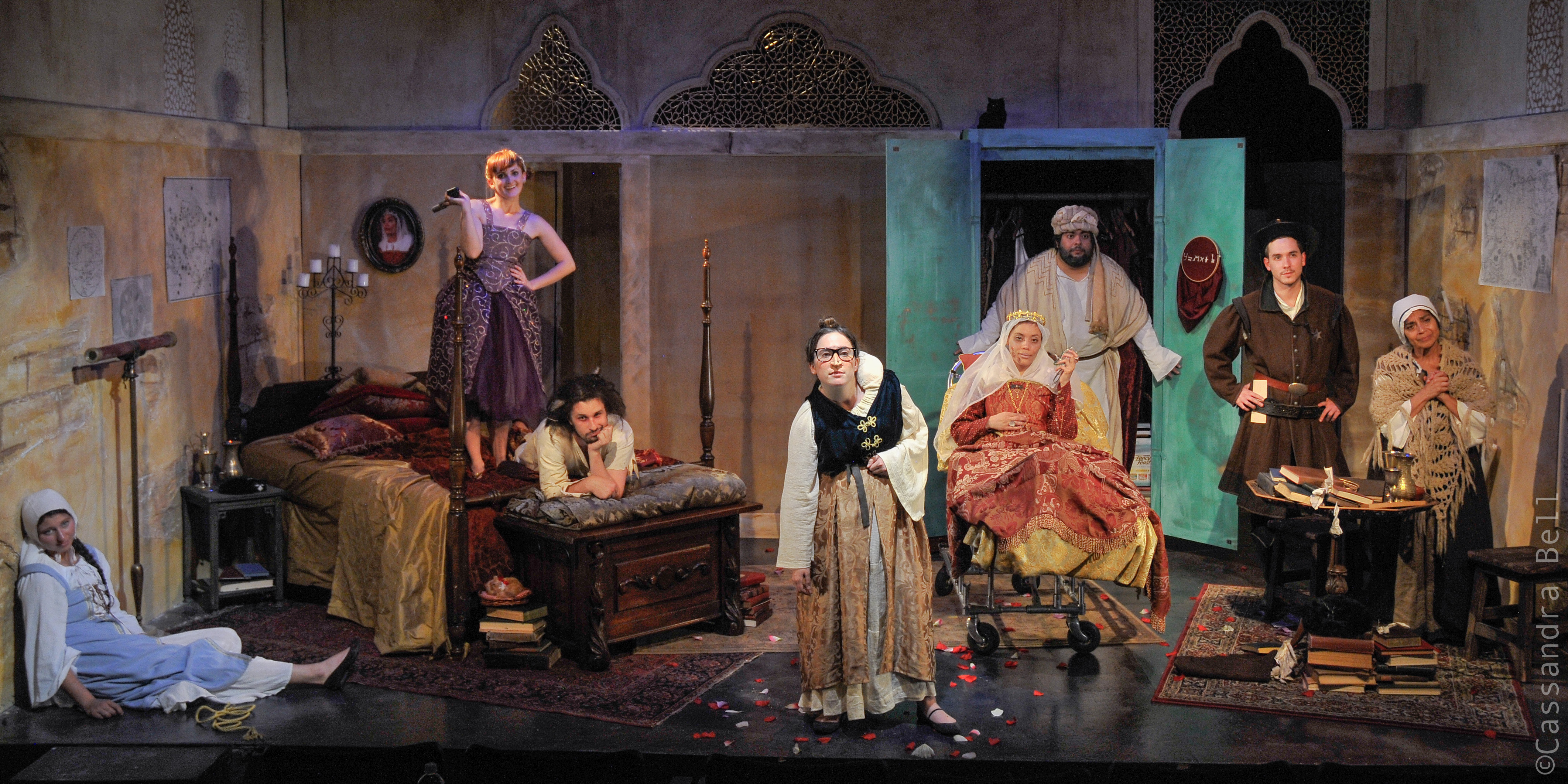My Ántonia
Center House, Seattle Center, 216-0833, www.book-it.org. $15–$40. 7:30 p.m. Wed.–Sat., 2 p.m. Sat.–Sun. Ends Dec. 21.
Ever drive cross-country with an audio book? It’s great. And when the action bogs down, you can either mentally disengage to scope out the scenery or hit the track advance button until something dramatic materializes. If only you could do the same with My Ántonia.
This was my first visit to Book-It Repertory Theatre, which has undertaken the admirable task of adapting literary classics for the stage. In theory, this project should expose theater patrons to a wider variety of authors while encouraging readers to sample more of the live fare. But choosing a novel that has precious little action and nudging it to the edge of three hours’ running time does neither Willa Cather nor a potential audience any favors.
Cather’s reminiscence of hardscrabble immigrant life on the American plains of the 1800s is a windy affair, and not merely for its setting and principals. Much of the story is told in the second person, so you’ll find characters introducing each other through descriptors as though the other isn’t actually present. As in, “Sheila had a thing for Jason Mraz and suffered a broken fibula as a child,” to which the other might reply, “Eddie had stringy red hair and lived for Monday nights, when he would meet old college buddies online to play World of Warcraft.” It’s stilted, and so jarring that often it catapults viewers out of the plot with a stern reminder that we’re sitting in an auditorium watching people pretend. Maybe there’s a reason this stage device hasn’t caught on.
The story revolves around a young man named Jim Burden (George Mount), who’s lost in his reverie about Ántonia, one of several daughters born to an immigrant family who arrive in Nebraska penniless and unable to speak English. Already an orphan himself, Burden feels an instant affinity with the family and soon takes Ántonia (Annie Lareau) under his wing even as he falls under the spell of her Old World allure.
As a play, though, this plot with its endless small charms drags continuously, and having a member of the ensemble show up every five minutes with a mustache or differently combed hair or a new pair of pants pushes the show in the direction of sketch comedy. Director Susanna Burney appears overwhelmed about where to put emphasis, and how to get to what’s dramatic without losing the narrative thread of Cather’s work. Much of the responsibility belongs to Lareau, who not only plays Ántonia as wild-eyed and slightly touched, but has adapted Cather so literally that everything but punctuation seems to have made the transition from novel to stage. That may be Book-It’s M.O., but if so, they need to be a little more shrewd in their choice of material.
Seven Brides for Seven Brothers
5th Avenue Theatre, 1308 Fifth Ave., 625-1900, www.5thavenue.org. $22–$81. 7:30 p.m. Tues.–Wed., 8 p.m. Thurs.–Fri., 2 & 8 p.m. Sat., 1:30 & 7 p.m. Sun. (except Dec. 24 & 25). Ends Dec. 28.
While most musicals of the baby-boom era became films after their Broadway success, Seven Brides actually began life as Stephen Vincent Benét’s short story (derived from the legend of Rome’s founding), then was an enormous film hit in 1954. It follows the unlikely exploits of a mountain man (in Oregon Territory, no less) who descends into the local town long enough to land himself a spouse and return whence he came. Milly (Laura Griffith) is only too happy to abandon her tavern job to live in the wilderness with her new husband, Adam Pontipee (Edward Watts)—until she learns that she’s basically signed on for more of the same treatment as washerwoman, cook, and barmaid to Adam and his six brothers in the tiny cabin they share. Call it Snow White with a heavy dose of pheromones.
Nor does the musical make any bones about its pre-lib leanings. Women are appraised with such niceties as “Bless Your Beautiful Hide,” while the fellas are reduced to “Lonesome Polecats.” But as a bona-fide slice of Americana (set in 1860), the show wins you over through an assortment of second-balcony soloists and dancing that’s as exhilarating to watch as it must be exhausting to perform. To see an ensemble of 170-pound men tumble and toss their womenfolk around as if they were weightless is to have a new appreciation for endurance. That they do it in time, with smiles, while carrying a tune, is what puts this show on a par with any of Broadway’s best.
It comes as no surprise that most of the cast has a lengthy list of New York or regional theater credits. Watts, who turns Adam Pontipee into a tuneful Grizzly Adams, has actually done a national tour in the same role. Griffith is a similarly snug fit in the role of Milly; beset but never abrasive, and blessed with a voice that brings down the house.
The economy may be in a tailspin, but you won’t find any evidence of it here. The orchestra, conducted and directed by Valerie Gebert, is a sonic marvel of its own; Anna Louizos’ sets are an ever-changing exercise in majestic earth tones, and the lighting and costumes (Tom Sturge and Jess Goldstein, respectively) are similarly flawless. Even to attempt Seven Brides is audacious: It’s considered a challenge to perform live, and doesn’t have a single signature song that’s found a life outside the musical. But as baseball great Dizzy Dean told his fans back in the 1930s, “it ain’t braggin’ if you can do it.”
Versus Vs. Versus
Annex Theatre, 1100 E. Pike St., 800-838-3006, www.annextheatre.org. $12–$18. 8 p.m. Thurs.–Sat. Ends Dec. 20.
Mark Chavez and Shenoah Allen are true masters of trapeze-artist comedy. Oh, they make it look easy, but it’s not the kind of thing you want to try at home.
These days the artists formerly known as Sabotage are touring as the Pajama Men in a new show called Versus Vs. Versus. With little more than a pair of chairs and musical accompaniment from Luminous Craft (musician Dominick Campbell, borrowing from the Conor Oberst playbook), the two performance artists juggle four or more plotlines concurrently and step from one character and scenario into another without taking a breath. That’s a nightly challenge of trust and nerve, and utterly entrancing to watch.
So what’s the show about? Well, not to be coy, but it’s about 90 minutes. That’s really all the concrete information I can provide, because there isn’t a story per se; there are too many characters to chronicle, and they’re not the point, anyway. The idea here is for Chavez and Allen to demonstrate how talented they are at mimicry, how well they use their bodies to drive home a punch line and shift from one vignette to the next, and how brilliantly they support each other’s flights into the rarefied air of what’s funny.
There are recurring themes, however: Two newsmen deliver a wrap of the headlines in a stream of non sequiturs; a pair of medieval rivals vie to rescue their damsel in distress; a father and daughter go on a fast-food outing; a husband and wife strive to keep each other guessing about their fidelity and fetishes. Finally, there’s a disturbing Englishman named Leopold (Allen) scary enough to make Rob Zombie run squealing for his mommy.
Although much of the show has the feel of improv, it’s plain that the pajama-clad performers have hammered out their transitions through countless hours of experience—the same way a jazz master knows a chord change is coming a dozen bars before anyone else has the slightest clue. Each of the duo also gets a solo spot. Chavez takes his time to impress a hottie in the audience with an “air mandolin” serenade, while Allen affects a European dialect of unknown origin to explain the subtle differences between what’s gross and what’s not.
In an era that has demoted the comedy team to astatus somewhere between oxymoron and anachronism (unless you count presidential tickets), Chavez and Allen have not only revived the form, they’ve practically patented a new way of working the formula.









